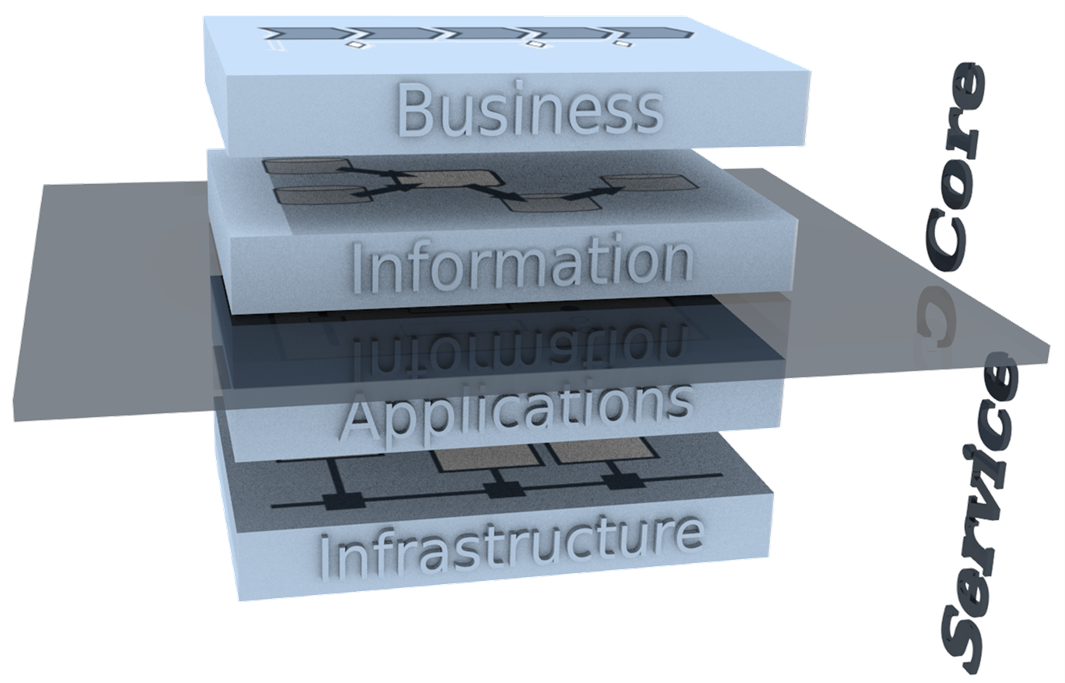
| Home | FAQs | Book Contents | Updates & News | Downloads |
When discussing data handling with senior management I very rarely get surprised, but, while I was discussing technical data with a very astute senior executive in a globally significant oil company, he said "I believe that data management is a core competency". Now, of course, I've come across that term informally before and "sort of" know what he means but I decided to track down the phrase and see if I agreed with the implications. One of the best definitions I found of "Core Competency" on the web was "a harmonized combination of multiple resources and skills that distinguish a firm in the marketplace"𝒶 . In other words the things that make an oil company an "oil company".

It is interesting to think about this definition in relation to the classic "four levels" of the enterprise architecture. As everyone knows they are the "Business Processes", the "Information Flows", the "Software Applications" and the "Infrastructure". Any of these levels that is not "core" is a candidate for out-sourcing. Service companies that specialises in providing, let's say Infrastructure, should be able to deliver a much more efficient service than the company could, both because of economies of scale (through doing the same thing for multiple clients) and through having done this many times before (to benefit from the learning curve). The fact that the service provided is "vanilla" and not particularly tuned to the company's needs doesn't matter too much because the company's goal is to get "good enough" service at the cheapest possible price. In contrast any "core" activities are deeply entwined with the value generating processes of the company. The goal for those layers is not to do things as cheaply as possible, but rather to find a combination of all these activities that maximises the value created (within the constraints of costs and available resources of course).
So, what do you think, in modern oil companies should the handling of technical data be considered a core competency? If you answer yes to that question then you are saying that the most senior executives should worry about how well current data handling "fits", you are saying that data management should be measured by return-on-investment rather than being seen as a cost centre, and therefore I personally think you are saying that there should be a specialised "Chief Data Officer" on the main board (to look after the technical data in contrast to the infrastructure). You know I think I want to put "data management is a core competency" on a T-shirt.
𝒶 This description is from the 1990 article in Harvard Business Review where the term was first employed (v. 68, no. 3). "The core competence of the corporation" by C.K. Prahalad. and G. Hamel.
Article 69 |
Articles |
RSS Feed |
Updates |
Intro |
Book Contents |
All Figures |
Refs |
Downloads |
Links |
Purchase |
Contact Us |
Article 71 |